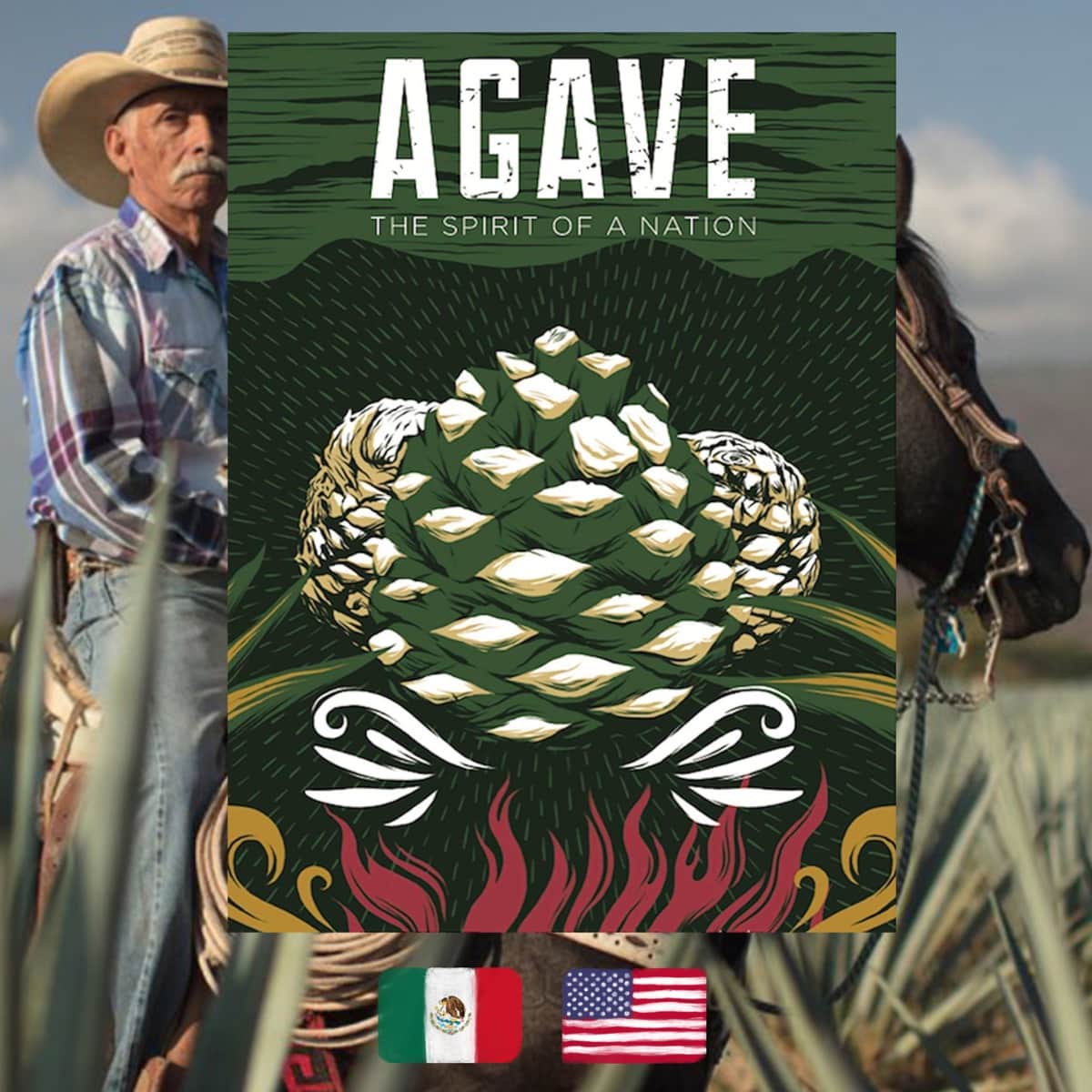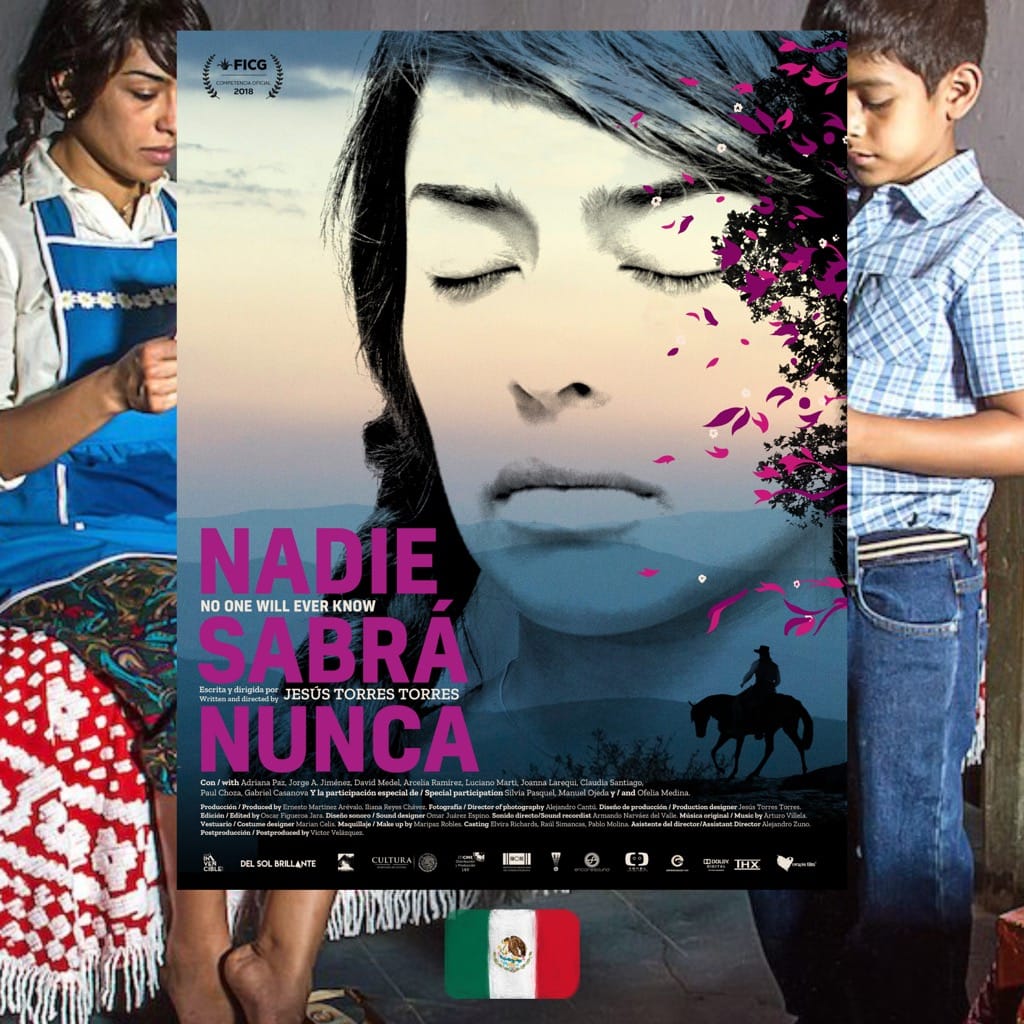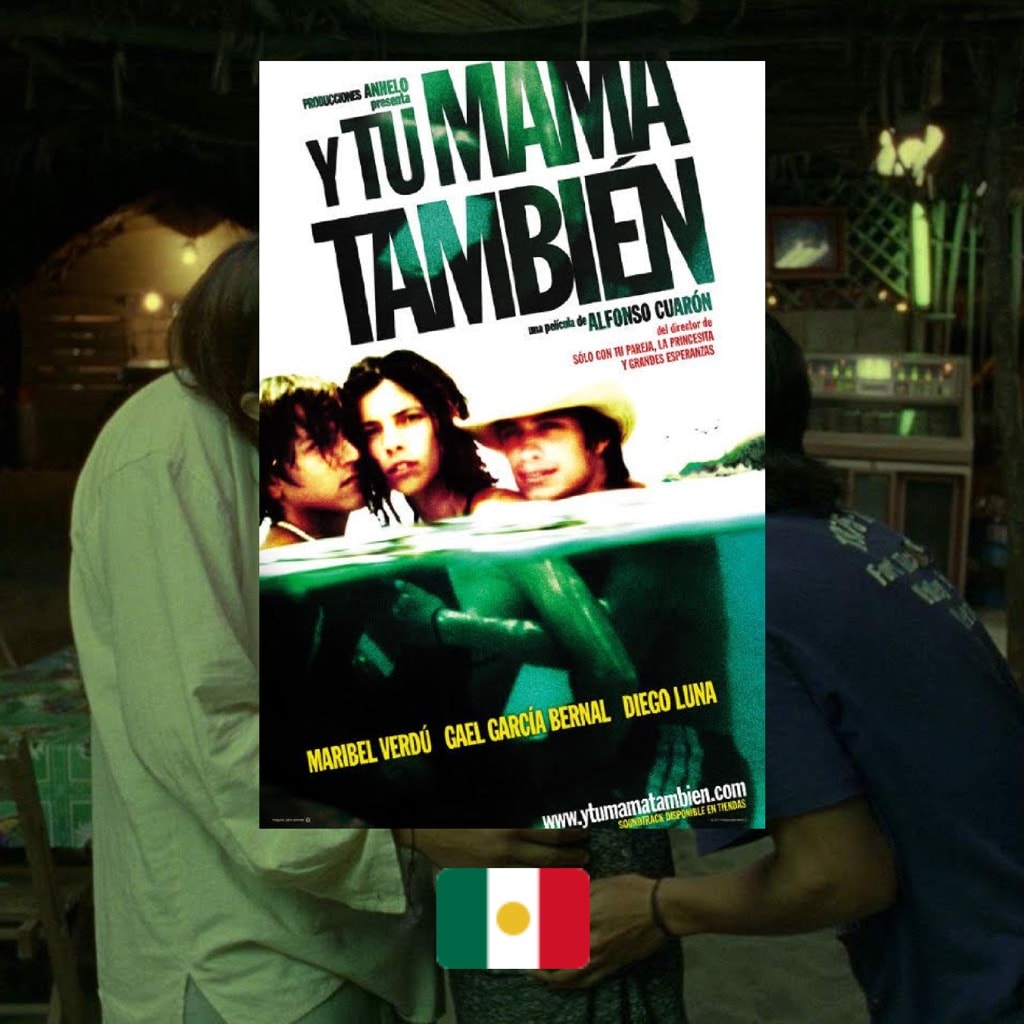Through portraits of three distillers and a thorough exploration of their process, this gorgeous documentary shows the role of mezca in Mexico’s economy, society, and environmental landscape



FROM MEXICO and UNITED STATES
WHAT IT’S ABOUT: Mezcal, the alcoholic spirit produced from the sap of the agave plant, is intrinsic to Mexico’s culture. And while one of its forms, tequila, has been conquering the international beverage markets for a while now, other types of mezcal have only been gaining prominence recently. “Agave: The Spirit of a Nation” seeks to outline the role agave has played throughout the years through the historical, economic, and social lenses and became an ode to Mexico’s colorful history of cultivating and harvesting the spiky plants. The film sheds light on three mezcal distilleries: Mezcal Real Minero and Vago Mezcal in Oaxaca and La Alteña in Jalisco. And the people who run them, with love and dedication to the industry’s traditions, get to introduce their histories, personal relationships with the drink, and views on the future of agave agriculture.
WHO MADE IT: Digital Cave is a filmmaking collective in charge of the film, with the two partners, Nick Kovacic and Matthew Riggieri, serving as directors. They had collaborated on numerous projects before, including the two other alcohol-related documentaries, “Decanted” on wine and “Brewmore” about Baltimore’s beer scene, for which Caleb Smith, the composer for “Agave” had also previously provided the soundtracks.
“Agave: The Spirit of a Nation” is produced in partnership with Habitant, a Mexico-based creative agency, and was initially inspired by Chantal Martineau’s book “How the Gringos Stole Tequila.”
The film’s narrator is Damián Alcázar, the acclaimed Mexican actor best known to the broad audience as Gilberto Orejuela in the TV show “Narcos.” He also appeared in “Chronicles of Narnia: Prince Caspian,” “The Crime of Padre Amaro,” as well as a wealth of great Mexican political satires and drama films originating from other Latin American countries.
Graciela Angeles Carreño is in charge of running Real Minero Mezcal distillery together with her brother Edgar Angeles: fourth-generation mezcalera(o)s, they took over the business after the death of their father, and Carreño is intent on passing the business further, for instance, to her young son Santiago.
Aquilino García López, the co-founder and head mezcalero for Mezcal Vago, appears alongside his sons and little grandson Kevin. Although educated in the art of mezcal making in the family, he only began producing mezcal commercially after opening Mezcal Vago with his daughter’s husband, Judah Kuper, and his friend Dylan, both Americans.
Carlos Camarena is the third generation distiller of La Alteña Distillery, opened by his grandfather in 1937. Now Carlos runs the business alongside his sister Jenny and other members of the family, and their product can be found under the labels El Tesoro, Tequila Ocho, Villa Lobos, Ex Cellia, Tapatio
WHY DO WE CARE: It’s a rather interesting project, to view the countries, their histories, economies, and social structures through the prism of the spirits distilled for pleasure, industry, and preservation of traditions. And looking at Mexico through the lens of agave production is enlightening and helpful in understanding the country’s political and social conditions. The biodiversity of agave species in Mexico is unmatched, and culturally locals had been dependant on the plant for fiber and nourishment long before colonization. However, today, as the century-old drinks are all the rage across the world, whether in a diluted margarita form or pure, the issues surrounding the production of mezcal are typical of agricultural and food production industries anywhere on the planet. In this case, the interdependence of the nation and the plant threatens to become a vicious circle, as demand for the product grows, but harvesting, due to various reasons, becomes problematic.
“Agave: The Spirit of a Nation” doesn’t get much into the relationship between NAFTA and the rise in agave farming that comes through in all the three stories. However, the knowledgeable viewer will connect the dots. It’s especially interesting to observe NAFTA’s effects in the story of García López and his sons. All of them had been forced by economic hardship back home to go and work in the US, where they saw exploitative labor conditions and little happiness. The rise of interest in agave within Mexico was also directly linked to NAFTA, as an abundance of cheap exported crops and produce from the United States hindered local agriculture and made farmers pivot to native plants. This has begun the renaissance of tequila and mezcal production, and made their market, alongside the Mexican beer market, one of the most prominent sectors of Mexican exports. And the main issue for the mezcaleros of today is a balancing act between economic viability and staying true to the traditions, to the “spirit.”
WHY YOU NEED TO WATCH: The three mezcaleros at the center of “Agave: The Spirit of a Nation” are a diverse bunch with different approaches to the art of preparing mezcal, which makes the exploration of their fields, distilleries, and personal lives a fascinating journey. All three also differ in what is central to their mezcal-based ideologies, and it’s interesting to see how those shape the priorities in their business practices.
For instance, Angeles Carreño is all about community building. A trailblazer as one of the few women to be involved in all phases of mezcal production, as well as management in this male-dominated field, she understands the importance of creating space, education, and opportunity intimately. This is why Real Minero focuses less on marketing and outreach abroad and concentrates on local presence and leaving a legacy. For instance, Angeles Carreño builds a library with her brother Edgar and eagerly partakes in the various communal activities.
For García López, the emphasis is on preserving the artisanal feel of the mezcal. As a small-time operation and the only distillery featured in the film to not be a multi-generational enterprise, Mezcal Vago appears to be low-key as compared to the more established practices of Angeles Carreño and Camarena. This is what gives it an edge in the fashionable “crafted” movement but also what creates obstacles in production, as Garcia López confesses that fulfilling orders is often a struggle. No surprise: in a moving scene, he is shown manually ferrying canisters across the river because the approaches to the bridge had been washed away. It’s a double bind, where a production that’s minimally invasive to the environment also has to suffer from the effects of climate change caused by the big industries.
And it’s the effects on the environment of mezcal’s production that preoccupy Camarena most. La Alteña is the film’s biggest operation, even using shiny conveyor belts for the bottling plant. But how to balance making a product that’s accessible to many while staying true to the traditional methods and taking good care of the planet that the new generations of the Camarena clan and the whole humankind will live in? Those thoughts consume Camarena, as he surveys the sprawling distillery, ponders the destiny of blue agave—the only suitable agave for making tequila, and, in a heartening sequence, makes friends with an abandoned baby deer.
A film that is as warm, enveloping, and invigorating as a gulp of good mezcal, “Agave: The Spirit of a Nation,” offers an incomparable glance into this noble, complex drink and the people who pour their souls into each and every bottle. It is a delectable mix of Damián Alcázar’s poetic narration, beautiful animations that describe the technicalities and historical importance of making mezcal, engaging, cordial portraits of the three mezcaleros and their crews at all stages of the harvesting and distillation, and the dazzling views of Oaxaca and Jalisco. It’s hard to watch “Agave: The Spirit of a Nation” and not be enthralled by the regions and the people that inhabit them, and the film’s premise, it seems, is to explain why mezcal is such a great drink: because it is a distillation of Mexico’s many wonders made through hard but honest labor.
Agave: The Spirit of a Nation, 2018
Directors: Nick Kovacic & Matthew Riggieri
For more content like this sign up for our weekly newsletter
WATCH THE TRAILER















